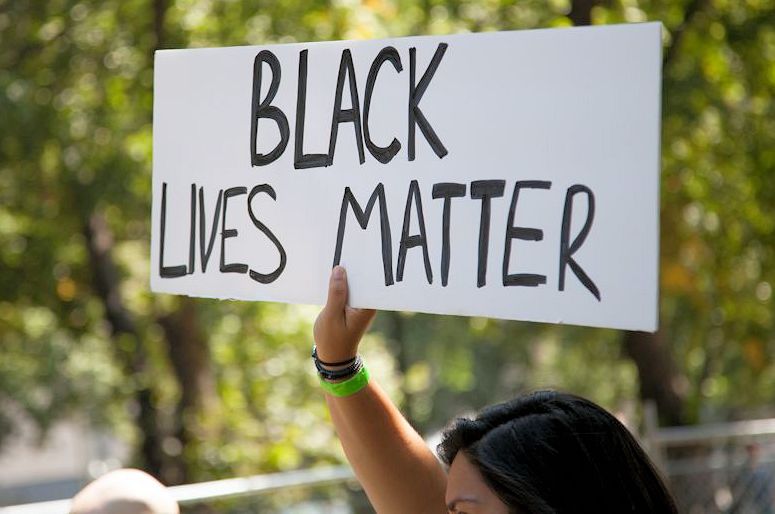The Full Cabinet responds to protests created by murders of George Floyd, Ahmaud Arbery, Breonna Taylor, Tony McDade, and Dion Johnson, and the systemic patterns that brought these tragedies about.
Do not be conformed to this world, but be transformed by the renewing of your minds, so that you may discern what is the will of God, what is good and acceptable and perfect. ~ Romans 12:2
Is not this the fast that I choose: to loose the bonds of injustice, to undo the thongs of the yoke, to let the oppressed go free, and to break every yoke? ~ Isaiah 58:6
Because, in the final analysis, there is no “out there.” The same power analysis and scrutiny of unjust systems that the horrendous death of George Floyd has provoked must be applied to The United Methodist Church. Explicit and implicit racism assaults the mental, spiritual and physical health of people of color in the church as well as those we are called to serve. ~ Erin Hawkins, General Secretary of the General Commission on Religion and Race of the UMC, response May 27, 2020.
As United Methodist Christian leaders appointed or elected to responsibilities for and within the Michigan Conference and our nine districts, we, the Full Cabinet members, make the following commitment. We do this in response to the justifiable protests created by the murders of George Floyd, Ahmaud Arbery, Breonna Taylor, Tony McDade, and Dion Johnson and the underlying systemic values and patterns that brought these tragedies about. We as the Full Cabinet confess our need to own this in order to identify and address institutional racism that exists within the Conference structures as well as our complicity as individuals. We invite you, the reader, to own it for yourselves and your ministries, too:
A CALL TO TRANSFORMATION
In our baptismal covenant, we affirm that we will “reject the evil powers of this world” and “accept the freedom and power” that God gives to us to “resist evil, injustice, and oppression in whatever forms they present themselves.” Racism is evil. It is an idolatrous sin against God’s intended creation of a diverse humankind. In the United States, racism in both individual and institutional forms has been and is one of the evil powers of this world and is used to perpetrate, perpetuate, and protect injustice and oppression in many forms. Many religious leaders and historians have long noted that racism is America’s original sin.
As Christian servant leaders, we are grateful for those of you who have already built partnerships in your villages, towns, suburbs, and cities to reveal and work on systemic racism as well as to take the journey into deeper cross-racial and cross-cultural relationships. We are grateful for clergy leaders and lay leadership in our communities of color who have guided their congregations and communities in the midst of troubled waters. We are grateful for white leaders who have been willing to undertake the deep self-examination to understand white privilege and implicit bias, including how these impact their actions and worldviews.
Yet, too often, white populations and individuals assume the “problem” is elsewhere and in someone else other than themselves. All too often, white congregations assume that as Christians, they would never be racist or participants in such systems. In reality, we have much work yet to do. In consultation with conference staff person Rev. Brittney Stephan, Associate Director for Multi-Cultural Vibrancy, we particularly want to offer some initial resources to help you as leaders and congregations in our predominantly white congregations:
- Resources in the Cultural Vibrancy Toolbox
- White Fragility, a book by Robin Diangelo
- How to Be an Antiracist, a book by Ibram X. Kendi
- The 21-Day Racial Equity Challenge
- Implicit Bias Workbook by GCORR (General Commission on Religion & Race of the UMC)
- Implicit Bias Online Course by GCORR
- Discussion Guide on White Privilege by GCORR
Local churches, please consider the possibility of creating small group studies, perhaps in collaboration with other United Methodist churches in your area. Also, check to see what anti-racism and intercultural competency events are in your area. As individual leaders, challenge yourselves to complete the Implicit Bias Course, perhaps in a covenant group. In the coming weeks and months, the Full Cabinet will deepen our work through processes, such as the Intercultural Development Inventory (IDI), leading toward greater intercultural competency, racial equity, and institutional awareness as we engage in this work moving forward.
Transformation is a journey toward justice and equity, out of which can come community and hope.
In Christ’s circle,
The Full Cabinet of The Michigan Conference
Bishop David Bard Jerome (Jerry) DeVine Benton Heisler
John Boley Elizabeth Hill Charles Boayue
Margie Crawford Jeff Maxwell John Hice
Scott Harmon Jodie Flessner Dwayne Bagley
LuAnn Rourke Don Emmert Dirk Elliott
Jennifer Browne John Kasper Mark Doyal
Anne Soles Annette Erbes John Wharton
Last Updated on October 31, 2023

